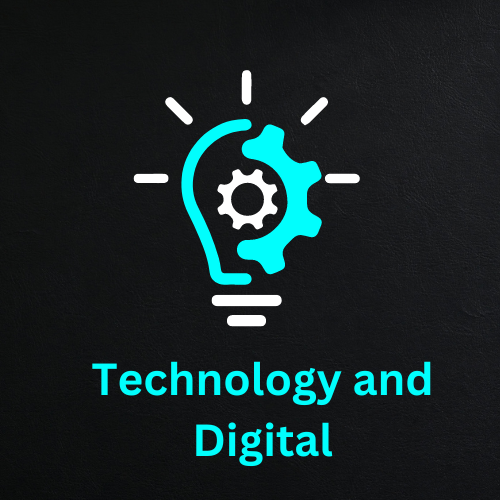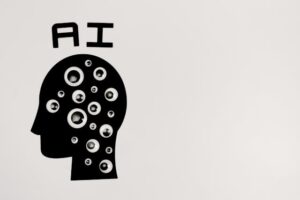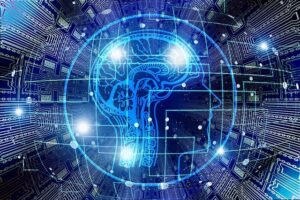
AI in Healthcare: Improving Patient Care with Intelligent Solutions
Artificial Intelligence (AI) is revolutionizing many aspects of our lives, and healthcare is no exception. Imagine a world where diagnosing diseases is faster and more accurate, treatment plans are personalized to each individual, and administrative tasks are streamlined to allow healthcare professionals to focus more on patient care. This is the promise of AI in healthcare, a field that is rapidly transforming the way we approach medicine and patient care. In this article, we’ll explore how AI is improving patient care through intelligent solutions, diving into various applications and the future of AI in healthcare.
Understanding AI in Healthcare
To grasp the impact of AI in healthcare, it’s essential to understand what AI entails. AI refers to the simulation of human intelligence in machines that are programmed to think and learn like humans. These intelligent systems can perform tasks that typically require human intelligence, such as visual perception, speech recognition, decision-making, and language translation.
Types of AI Technologies Used in Healthcare
AI technologies in healthcare range from machine learning algorithms that analyze medical data to natural language processing systems that interpret clinical notes. Key types of AI in healthcare include:
- Machine Learning (ML): Algorithms that learn from data and improve over time.
- Natural Language Processing (NLP): AI that understands and processes human language.
- Robotic Process Automation (RPA): AI that automates routine administrative tasks.
- Computer Vision: AI that interprets visual data from medical images.
AI in Diagnostics
One of the most significant impacts of AI in healthcare is in the field of diagnostics. AI-enhanced diagnostic tools are transforming the way diseases are detected, often with greater accuracy and speed than traditional methods.
Enhanced Accuracy in Disease Detection
AI algorithms can analyze medical images, such as X-rays, CT scans, and MRIs, to detect abnormalities with a high degree of accuracy. For example, AI systems can identify early signs of cancer or detect retinal diseases from eye scans, sometimes more accurately than human doctors.
Examples of AI in Medical Imaging
AI-powered tools like Google’s DeepMind and IBM’s Watson are already making waves in medical imaging. DeepMind’s AI system can detect over 50 eye diseases from retinal scans, while Watson assists radiologists by providing insights from large datasets of medical images.
AI-Powered Diagnostic Tools and Their Benefits
AI diagnostic tools offer several benefits, including reduced human error, faster diagnosis, and the ability to process vast amounts of data quickly. These tools help in identifying diseases at an early stage, leading to better patient outcomes and more effective treatments.
AI in Personalized Medicine
Personalized medicine, also known as precision medicine, tailors medical treatment to the individual characteristics of each patient. AI plays a crucial role in this approach by analyzing genetic, environmental, and lifestyle factors.
Tailoring Treatment Plans to Individual Patients
AI systems can analyze a patient’s genetic information alongside other health data to recommend personalized treatment plans. This approach ensures that treatments are more effective and have fewer side effects.
Genomic Analysis and AI
AI is revolutionizing genomic analysis by rapidly interpreting genetic data to identify mutations and predict the risk of hereditary diseases. This enables doctors to take preventive measures or tailor treatments based on a patient’s genetic profile.
Case Studies of Personalized Treatment Success
Several success stories highlight the impact of AI in personalized medicine. For instance, IBM Watson has been used to identify effective cancer treatments based on the genetic makeup of individual tumors, significantly improving patient outcomes.
AI in Predictive Analytics
Predictive analytics in healthcare involves using AI to analyze current and historical data to predict future health events. This approach helps in managing patient care proactively rather than reactively.
Predicting Disease Outbreaks and Patient Outcomes
AI models can predict disease outbreaks by analyzing data from various sources, such as social media, travel patterns, and climate conditions. This information allows healthcare providers to prepare and respond effectively to potential epidemics.
AI in Epidemiology and Public Health
AI-driven predictive analytics are valuable in epidemiology and public health by forecasting the spread of diseases and evaluating the effectiveness of interventions. For example, AI models have been used to predict the spread of COVID-19 and assess the impact of containment measures.
Benefits of Predictive Analytics for Healthcare Providers
Predictive analytics enable healthcare providers to anticipate patient needs, allocate resources efficiently, and improve patient outcomes. By predicting patient deterioration, hospitals can intervene early, reducing hospital stays and readmission rates.
AI in Treatment and Care
AI is also making significant strides in the actual treatment and care of patients. From robotic-assisted surgeries to virtual nursing assistants, AI is enhancing the quality and efficiency of patient care.
AI-Assisted Surgery and Robotics
Robotic-assisted surgeries powered by AI provide surgeons with greater precision and control. These systems can perform complex procedures with minimal invasiveness, leading to faster recovery times and reduced risk of complications.
Virtual Nursing Assistants
Virtual nursing assistants use AI to provide round-the-clock support to patients. They can answer health-related questions, monitor patient conditions, and provide medication reminders, enhancing patient care and reducing the burden on healthcare professionals.
AI in Chronic Disease Management
AI plays a vital role in managing chronic diseases by continuously monitoring patient data and providing personalized treatment recommendations. For instance, AI systems can help diabetics manage their condition by analyzing blood sugar levels and suggesting dietary adjustments.
AI in Drug Discovery and Development
The drug discovery process is notoriously time-consuming and expensive. AI is streamlining this process by identifying potential drug candidates and predicting their efficacy and safety.
Accelerating the Drug Discovery Process
AI algorithms can analyze biological data to identify new drug targets and predict the effectiveness of drug compounds. This accelerates the initial stages of drug discovery, potentially bringing new treatments to market faster.
AI in Clinical Trials and Drug Repurposing
AI helps optimize clinical trials by identifying suitable participants, predicting outcomes, and monitoring side effects. Additionally, AI can analyze existing drugs to find new therapeutic uses, a process known as drug repurposing.
Success Stories of AI-Developed Drugs
Several AI-developed drugs are already making an impact. For example, an AI-discovered drug for obsessive-compulsive disorder (OCD) has progressed to clinical trials, highlighting the potential of AI to revolutionize drug development.
AI in Administrative Tasks
Healthcare involves a significant amount of administrative work, which can be time-consuming and prone to errors. AI is automating many of these tasks, allowing healthcare professionals to focus more on patient care.
Streamlining Administrative Processes
AI systems can automate routine administrative tasks such as patient scheduling, billing, and claims processing. This reduces the administrative burden on healthcare staff and improves overall efficiency.
Reducing Paperwork and Improving Efficiency
AI-powered tools can digitize and organize medical records, making it easier to access and analyze patient information. This not only reduces paperwork but also ensures that patient data is accurate and up-to-date.
AI in Scheduling and Resource Allocation
AI can optimize scheduling for both patients and healthcare providers, ensuring that resources are used efficiently. For example, AI systems can predict peak times for hospital admissions and allocate staff accordingly.
Ethical Considerations in AI Healthcare
While AI offers numerous benefits, it also raises important ethical considerations that need to be addressed to ensure fair and responsible use.
Addressing Bias and Ensuring Fairness
AI systems can perpetuate existing biases in healthcare if not carefully managed. Ensuring that AI algorithms are trained on diverse and representative data sets is crucial to avoid discrimination and ensure fair treatment for all patients.
Data Privacy and Security Concerns
AI systems rely on vast amounts of data, raising concerns about privacy and security. Implementing robust data protection measures and ensuring transparency in data usage are essential to protect patient information.
Transparency and Accountability in AI Systems
Building trust in AI systems requires transparency and accountability. Healthcare providers must ensure that AI decisions are explainable and that there is a clear process for addressing errors or biases in AI-driven outcomes.
The Future of AI in Healthcare
The future of AI in healthcare is bright, with continuous advancements and innovations promising to further transform patient care.
Emerging Trends and Technologies
Emerging technologies such as quantum computing, edge AI, and advanced natural language processing will enhance the capabilities of AI in healthcare. These innovations will enable more sophisticated analyses and provide even greater insights into patient care.
Potential Challenges and Solutions
Despite the potential, challenges such as ethical concerns, data integration, and regulatory hurdles remain. Addressing these challenges through collaboration between technology developers, healthcare providers, and policymakers will be key to realizing the full potential of AI in healthcare.
The Role of AI in Future Healthcare Innovations
AI will continue to play a crucial role in driving healthcare innovations, from improving diagnostic accuracy to enhancing personalized medicine. By embracing AI, healthcare providers can offer better care, improve patient outcomes, and create a more efficient healthcare system.
Conclusion
AI is undoubtedly revolutionizing healthcare, offering intelligent solutions that enhance patient care, streamline administrative tasks, and drive medical innovations. As we continue to explore the potential of AI, it’s essential to address ethical considerations and ensure responsible deployment. The future of AI in healthcare is filled with promise, and by harnessing its capabilities, we can create a smarter, more efficient healthcare system.




